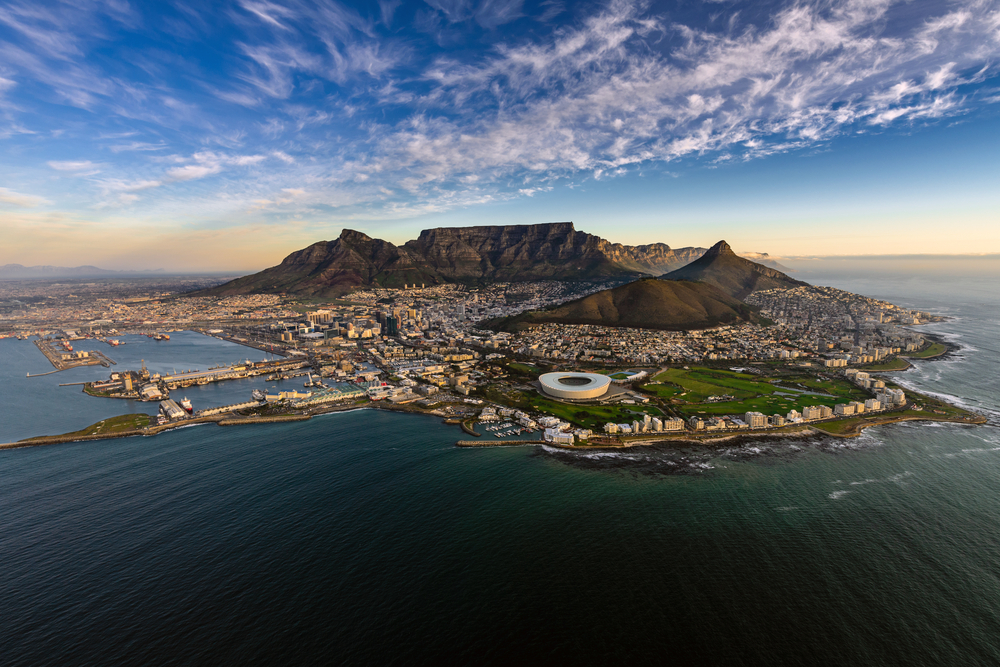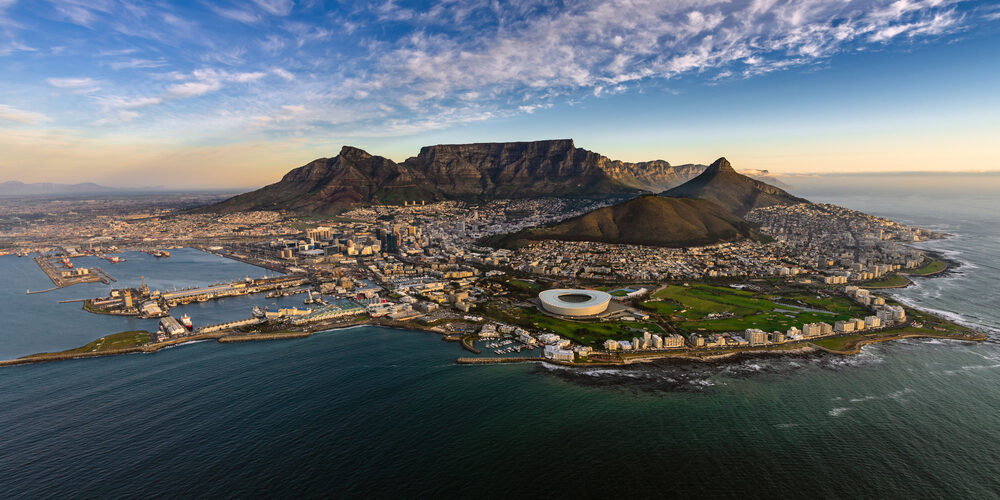Rugby in South Africa
Rugby holds a revered place in South Africa, played by hundreds of thousands of people across the country. In South Africa rugby is more than just a sport, it’s a cultural institution, a symbol of national unity and pride. Here we take a look at how the country navigated its tumultuous history to become a powerhouse in international rugby.
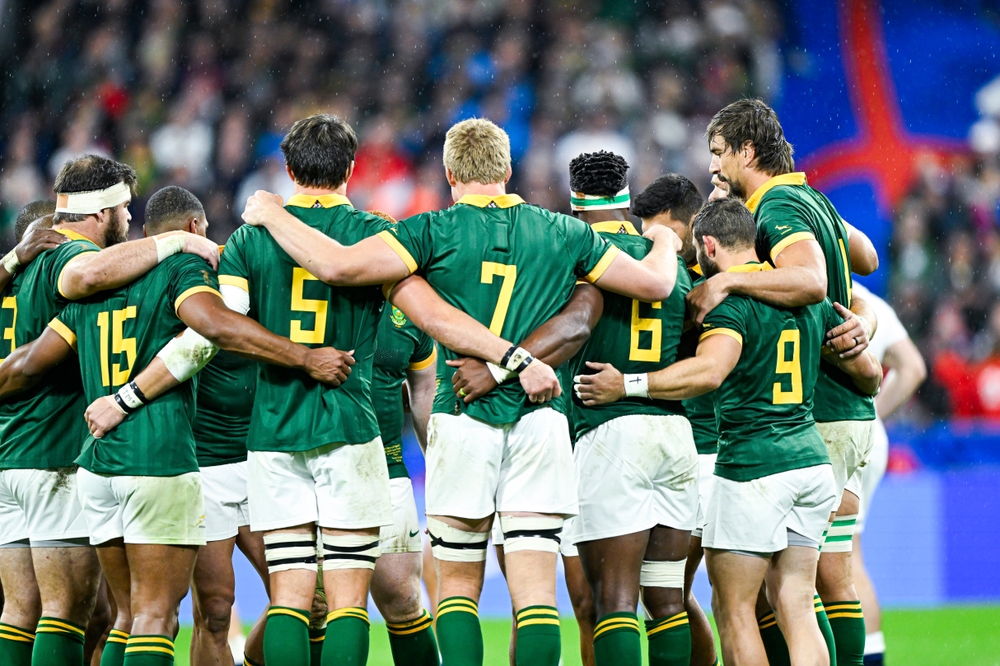
Rugby in South Africa
Like much of the subcontinent, South Africa was introduced to rugby through British colonists in the 19th century. Canon George Ogilvie, the headmaster of Diocesan College, is often credited with introducing the sport to his school. Rugby began to grow in Cape Town and then eventually across the country.
British troops played a key role in increasing the popularity of the sport. The first team from South Africa toured the British Isles in 1891, with them playing test rugby for the first time in 1906. The South African Rugby Board was established in 1889, but this only governed white South Africans playing the sport.
There was also a Rugby Union which governed Black South Africans players. When apartheid was abolished, these two unions merged to form the South African Rugby Union which is the governing body of the sport in the country and is affiliated with World Rugby.
At the professional level, there are four franchise teams playing in the United Rugby Championship. The Bulls, Lions, Sharks and Stormers also compete in the European domestic competitions. There is also the Currie Cup, which has been the premier domestic rugby competition since 1892.
Rugby is still played massively on the amateur level. South Africa has over 400,000 registered rugby players thanks in part to the sports integration into the school system, fostering the development of top-level international talent.
The Springboks history
The national rugby team has a storied history in South Africa, one that mirrors the country’s struggles and triumphs The first international match that South Africa played was in 1891, losing to the British Isles. The country’s play improved, but for decades Black players were excluded from the national squad due to apartheid.
This meant that South Africa were banned from the first two Rugby World Cups and there were very few tours of the country during the 1980s and 1990s. When apartheid was abolished, South Africa were readmitted to international rugby and even got to host the first Rugby World Cup that they played in.
The 1995 Rugby World Cup was a landmark event for South Africa and not just because they were the hosts of the tournament. With apartheid abolished and the country moving forward under President Nelson Mandela, the entire nation got behind this unified South African team.
It helped that the Springboks were very successful at the time. While they had struggled a bit since geting back into international rugby, they were firing at the RWC. They cruised through the tournament behind a steady defence, reaching the Final.
In the Final against New Zealand, South Africa were able to slow down Jonah Lomu, who had scored four tries in the semi-final. The game went to extra time, with Joel Stansky slotting the winning drop goal in the 92nd minute to win the game for the Springboks.
After the match, Nelson Mandela handed Springboks captain Francois Pienaar the Webb Ellis trophy in one of the most iconic moments in rugby history.
Success since then
The national team has had a lot of success since then. They finished third in 1999 and then lost in the quarter-finals in 2003. But 2007 saw a loaded South African side featuring international legends like Bryan Habana, John Smit, Schalk Burger and Bakkies Botha.
They powered through the competition in the Rugby World Cup, including beating England easily in their pool stage. The semi-final was particularly impressive, with the Springboks powering past Argentina to the final. In the RWC Final, the Springboks defeated England 15-6.
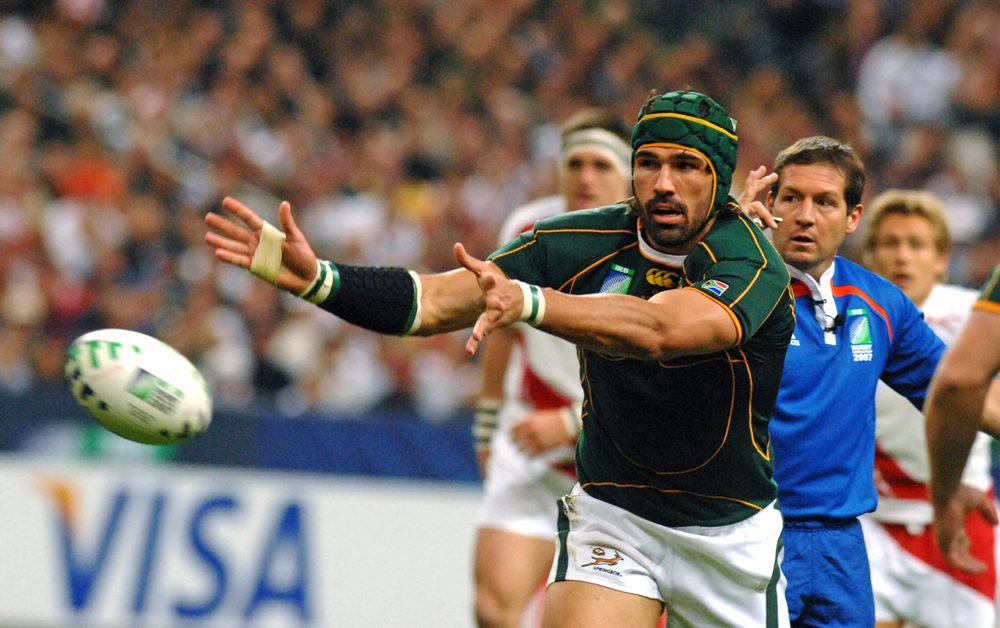
The next two tournaments saw the Springboks drop out of contention for the RWC, despite winning the Tri-Nations in 2009. They struggled to compete with New Zealand for about a decade, particularly as the Springbok team changed.
In 2018, the team was still changing when Siya Kolisi became the first Black captain of the Springboks, a significant milestone for rugby in South Africa.
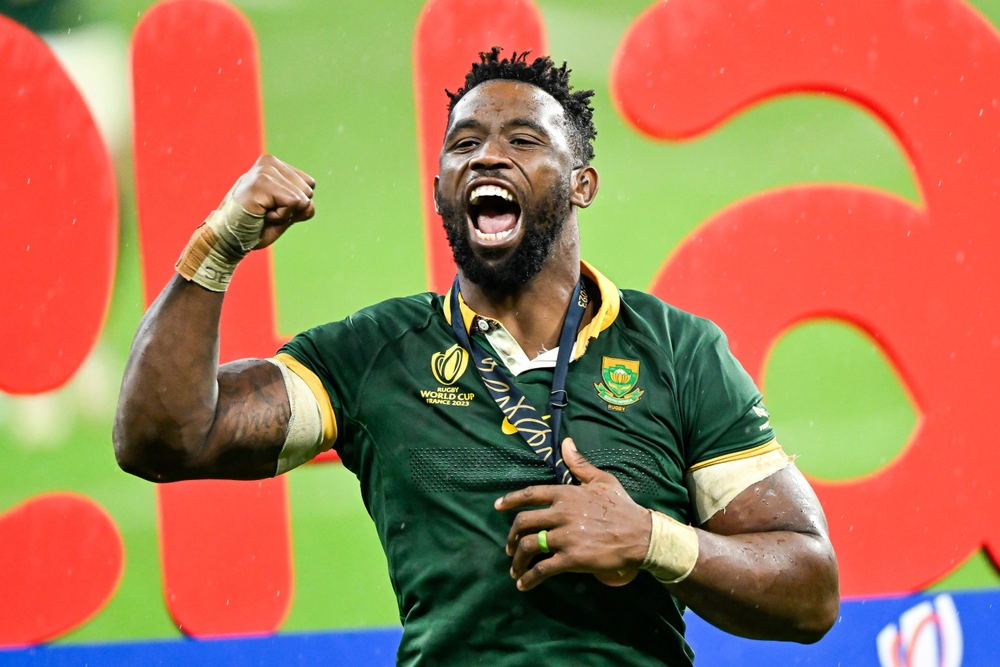
Kolisi’s leadership led to the team’s resurgence. They won the Rugby Championship in 2019, the perfect preparation for the Rugby World Cup later that year. The tournament was the first for new head coach Rassie Erasmus and the team was bolstered by Makazole Mapimpi, Cheslin Kolbe and Bongi Mbonambi.
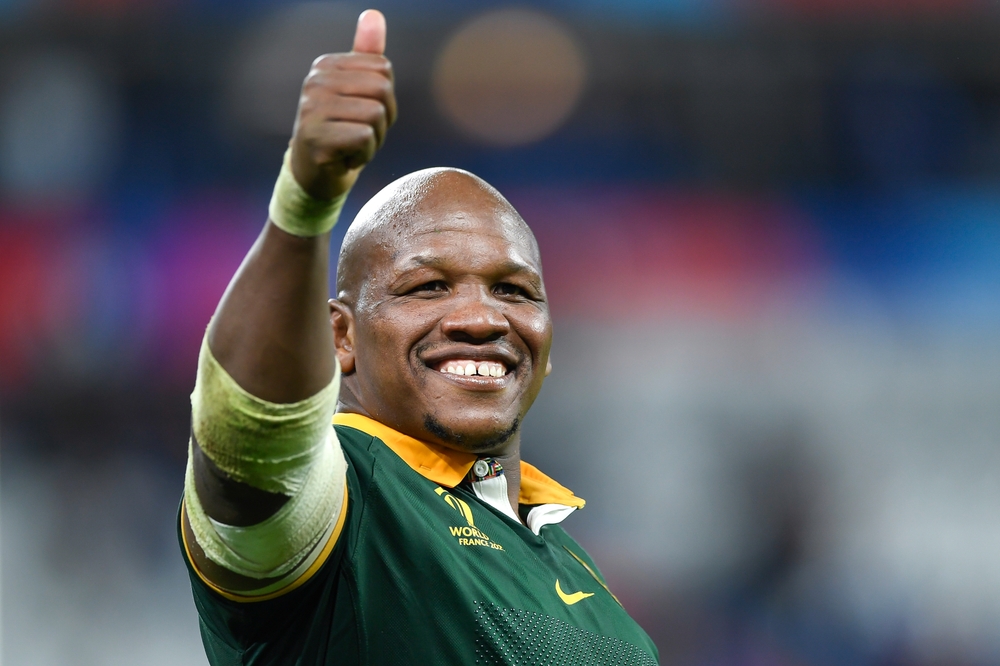
Erasmus brought in the changes and it certainly worked out, with Siya Kolisi lifting the Webb Ellis Trophy in 2019. The final was a rematch of the 2007 RWC Final, which the Springboks won once again. They tied the All Blacks for the most Rugby World Cup victories of all time.
South Africa faced tougher competition in 2023, facing top ranked Ireland in the pool stage. Despite losing to Ireland, they still made it through the pool stage and defeated hosts France in the quarter-final by just a single point.
The semi-final was a rematch of the 2019 Final against England, with South Africa the heavy favourites heading into the game. But it was a very close match with the Springboks coming out with a one-point win.
The final set them against New Zealand in a repeat of the 1995 Final. South Africa earned another one-point victory, in part thanks to Sam Cane being sent off for a dangerous tackle. The Springboks became the first ever four-time Rugby World Cup champions and solidified their legacy in rugby history.
